Opinion
ISSA AREMU: “COMRADE-DG” AT 64
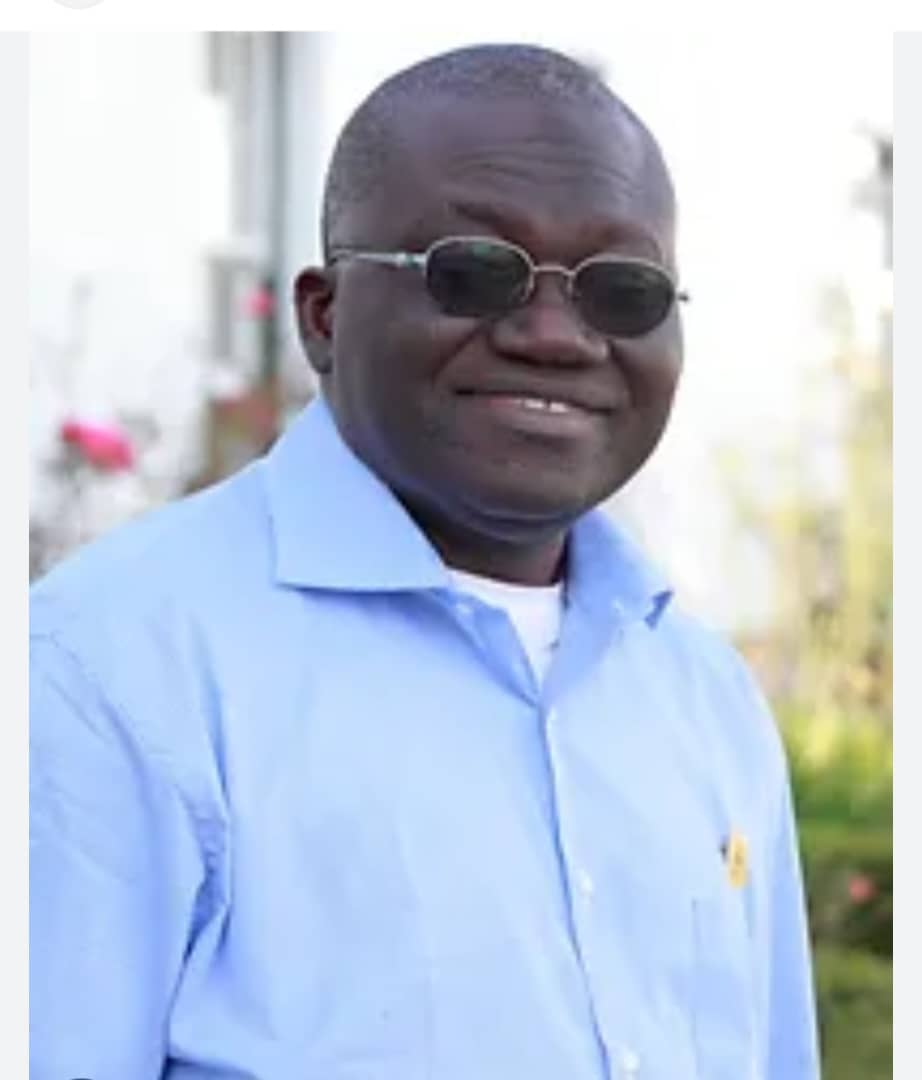
By Tunde Olusunle
A studious interrogation of his educational background, offers some insight into the experiences which crystallised into his latter day exertions as a left-inclined personality and public figure. He studied Economics at the University of Port Harcourt, posting a second class upper performance with honours. He encountered acclaimed radical theorists, Karl Marx, Friedrich Engels, Vladimir Lenin and so on in the course of his studies and research. He was mentored by the famous, radical political economist, Bade Onimode, Emeritus Deputy Vice Chancellor of the University of Ibadan, who sadly passed at 57 in 2001, among a cream of other influencers. He would thereafter pursue a career in journalism, opting for the labour beat in a vocation which was undergoing very rapid professionalisation at the time.
The Kano-based *Triumph* newspapers was his first address back in 1981. It was a milieu during which almost each of Nigeria’s 19 states owned print and electronic media organisations. He thereafter underwent the mandatory one-year National Youth Service Corps, (NYSC), at the upcoming *Concord* newspapers in Lagos, between 1985 and 1986. He was engaged upon the completion of his NYSC, at the national headquarters of the Nigeria Labour Congress, (NLC). He thus became one of the country’s first university graduates employed by the nation’s foremost umbrella association for Nigerian workers. The gravitation of young technocrats like him was thenceforth going to energise the labour superstructure and impact public perception of the labour movement in Nigeria.
Born in Ijagbo in Kwara State, January 8, 1961, Issa Obalowu Aremu’s life is as cosmopolitan as can be imagined. His untiring quest for knowledge has taken him around and about his home country and beyond. He has traversed educational institutions in Ilorin, Kwara State; Zaria, Kaduna State; Port Harcourt, Rivers State; Jos, Plateau State; Maryland in the United States of America, (USA), and The Hague in the Netherlands. The journey of his life has been populated by significant milestones all the way. He headed the Economics and Research Department of the NLC headquarters domiciled in Lagos at the time, between 1987 and 1989. He was on the Senior Executive Course 27 of the National Institute for Policy and Strategic Studies, (NIPSS), graduating in 2005. He would later serve for two terms, 2013 to 2017, as Secretary-General of the Alumni Association of NIPSS, known by the acronym *AANI.* He was Vice President of the NLC for two terms, stretching from 2007 to 2015.
While on this assignment, Issa Aremu was tapped as a Delegate of the Organised Labour, to the National Conference convened by Nigeria’s former President Goodluck Jonathan in 2014, and was Deputy Chairman of the Committee on Civil Society, Labour, Youths and Sports. Aremu previously described the Conference as “wasteful and diversionary.” He canvassed good governance, in place of talkshops. His perspective was different, however, after his participation in the Conference. He confirmed in a television interview that about 500 recommendations were proposed by the assembly to issues at the heart of the nation, which received concurrence by consensus. He alluded to labour-related issues such as workers’ remuneration; pensions and gratuities; hours of work and maternity duration as some of the issues canvassed by the organised Labour.
On May 18, 2021, Issa Aremu widely known in labour and trade union circles as *Comrade,* was appointed Director-General of the Michael Imoudu National Institute for Labour Studies, (MINILS), by the immediate past President, Muhammadu Buhari. The institute was established by the administration of Nigeria’s Second Republic President, Usman Shehu Shagari, in 1983. It has been suggested that Senate Leader in that era, Olusola Saraki, was largely influential in siting the institution in Kwara State, the charismatic politician’s home state. This tallies with the latter day disposition of the older Saraki’s son, Bukola, governor of Kwara State between 2003 to 2011, who substantially assisted with the construction and modernisation of structures in the institute. MINILS is supervised by the Federal Ministry of Labour and Employment. It is headquartered in Ilorin, Kwara State, with a number of regional outposts in select states across the country. Aremu thus became the very first core, career trade and labour practitioner to be appointed to the position.
Aremu has successfully undertaken the renovation of the training block of the institution and installed solar facilities for the supply of energy to the directorate, administrative, training and education blocks, as well as the resource centre of the organisation. From time to time, he rehabilitates the dirt access from the Ajasse-Ipo road approach, to the institution’s main gate, to ensure motorability. The said road is long overdue for asphalt or concrete tarring, both for the convenience of commuters and the health of other users, presently condemned to dangerous, daily dust inhalation. The parent ministry of the institute is reportedly collaborating with its parastatal, MINILS, and the Government of Kwara State to make the perimeters and precincts of the institution much better. Former Senate President, Bukola Saraki and his successor, Abdulfatah Ahmed, were very supportive of the physical development of the institute. They built accommodation facilities and resource infrastructures to augment the evolution of MINILS.
There is, reportedly, continuing tripartite dialogue about how best to relocate illegal vendors and hawkers lining the major approach entrance into MINILS, as soon as feasible. Parties in the talks are said to include the Kwara State Government; the Federal Ministry of Labour and Employment, and MINILS. The tertiary institution is reputed to be the only such establishment, solely devoted to capacity building for labour and trade unionists on the west coast of Africa. It is imperative to impose more sightly aesthetics around and about the 42 year old institute, both for Nigerian nationals, and potential foreign subscribers and partners. The sprawling beauty into which the older University of Ilorin within the same city as MINILS has evolved into, has become a veritable inspiration for other tertiary institutions in Kwara State. MINILS under Aremu’s leadership last year, successfully hosted the *10th National Labour Summit* in its Ilorin facility.
Unknown to many, Issa Aremu is indeed a public scholar with many published works to his credit. These include: *The Crises of Pricing Petroleum Products in Nigeria,* and *The National Union of Textiles, Garments and Tailors,* both published in 2001. In 2015, four anthologies of Aremu’s essays were released namely: *Reflections on Friends, Comrades and Heroes;* *Reflections on Industry and Economy;* *Reflections on Labour and Trade Unions* and *Reflections on Africa and Global Affairs.* The reputable *Malthouse Press,* in Ibadan did professional justice to the aesthetics of the books. Creative alternative titles, however, should have been deployed to distinguish all four publications which titles begin with the word “Reflections.” Synonyms like “Thoughts,” “Musings,” even “Thinkings” are credible possibilities.
Aremu who still finds time to contribute to issues on the front burner of public discourse, from time to time, had previously functioned as Member, National Executive Council of the NLC and General Secretary, National Union of Textile, Garment and Tailoring Workers of Nigeria, (NUTGTWN). He was Board Member, National Salaries, Incomes and Wages Commission, (NSIWC), and Vice President, Industrial Global Union, representing over 50 million members globally. Apart from NIPSS, Aremu was at the Institute for Social Studies, (ISS), The Hague, Netherlands from 1990 to 1991, from where he obtained a masters degree in Labour and Development. He was also at the George Meany Centre of the National Labour College in the United States, in 2003.
Issa Aremu wears an almost permanent smile on his face. He attempted the governorship of Kwara State in 2019, on the platform of the Labour Party, (LP). His endeavours as a Comrade over time have been acknowledged at various times. A Member of the National Institute for Policy and Strategic Studies, (NIPSS), since 2005, the *mni* appellation is affixed to his name. He also received the Nigerian Productivity Order of Merit, (NPOM) in 2014, and the *Gold Prize Public Service Award* in 2024. He enjoys debate and cycling. He is happily married to Khadijat Aremu and blessed with children. His family has attuned to his lifelong career on the frontlines of trade and labour unionism.
*Tunde Olusunle, PhD, Fellow of the Association of Nigerian Authors, (FANA), teaches Creative Writing at the University of Abuja*
Opinion
5G,IoT and AI to boost global GDP by 2030

By Sonny Aragba-Akpore
With Mobile technologies and services now generating around 5.8% of global Gross Domestic Product (GDP) a contribution that amounts to about $6.5 trillion of economic value, there are strong projections that by 2030, this figure will rise to almost $11 trillion, or 8.4% of GDP.
Global System of Mobile Communications Association (GSMA) says much of this will be driven by countries around the world increasingly benefiting from the improvements in productivity and efficiency brought about by the increased take-up of mobile services and digital technologies, including 5G, Internet of Things (IoT) and Artificial Intelligence (AI).
The GSMA recently introduced the 5G Connectivity Index to provide insights into 5G performance in 39 markets in order to encourage informed decision-making.
In terms of Economic Impact,
the GSMA emphasizes the economic benefits of mobile technologies and services, including 5G, projecting that they will contribute significantly to GDP growth by 2030.
“The GSMA provides specific reports and analyses on 5G in different regions, such as Sub-Saharan Africa, Asia ,Middle East among others highlighting the progress and challenges of 5G deployment in specific areas.”
In Sub Saharan Africa for instance with particular attention on Nigeria,South Africa,Egypt,Kenya and Botswana among others some measure of progress in deployment has been recorded.
The rollout of 5G has brought immense benefits across multiple industry sectors, particularly those involving internet of things (IoT) and artificial intelligence (AI) applications in which the real-time transfer of data is crucial.
More broadly, the adoption of 5G is expected to accompany increased data use across the globe, with forecasts anticipating mobile data traffic of over 300 exabytes per month by 2030, more than twice the volume consumed in 2024 according to Statista.
And with a third of global population expected to be covered by this fifth generation (5G) networks ,a technology that has defined new ways of communication by 2025 ,GSMA
says the technology has surpassed growth projections of all times.
“5G subscriptions increased by 163 million during the third quarter 2024 to total 2.1 billion. 5G subscriptions reached close to 2.3 billion by the end of 2024 accounting for more than 25 percent of all global mobile subscriptions.
“4G subscriptions continue to decline as subscribers migrate to 5G” according to GSMA.
As of the first quarter of 2024, there were nearly two billion 5G connections worldwide, with 185 million new additions. This is expected to grow to 7.7 billion by 2028.”
Statistics show that 5G is the fastest-growing mobile broadband technology, reaching 1.5 billion connections by the end of 2023.
It only took four years to reach this number, compared to 10 years for 3G and more than five years for 4G.
“5G is more than a new generation of technologies; it denotes a new era in which connectivity will become increasingly fluid and flexible.5G Networks will adapt to applications and performance will be tailored precisely to the needs of the user” GSMA submits.
By covering one-third of the world’s population , impact on the mobile industry and its customers will be profound according to GSMA.
To deepen the spread of 5G ,GSMA is working closely with the mobile operators pioneering 5G, “by engaging with governments, vertical industries including automotive, financial services, healthcare providers, transport operators, utilities and other industry sectors to develop business cases for 5G.”
And In order to accelerate the growth and spread, many operators are said to be deploying
AI technology as part of an integral part of telecoms operators’ strategic and operational plans.
“Operators are making important advancements in the deployment of AI technology, which is serving as a transformative force shaping the telecoms industry. By deploying autonomous AI-based systems, operators can enhance operational efficiency, customer satisfaction and security, while also creating new revenue opportunities”.
China, South Korea, the United Kingdom, Germany, and the United States are the leading countries with robust 5G coverage in the world.
Since the first commercial launches of the fifth generation of mobile networks in late 2018, these five countries have emerged as leaders because multiple companies in these countries have deployed networks and are selling compatible devices. Countries including Switzerland and Finland are up and comers in 5G development, though they have limited deployment.
In China there are three Companies leading in deployment.
The world’s largest 5G network was launched by the three largest Chinese network operators Oct 31, 2019, according to the state-run news agency Xinhua. These are China Mobile, China Unicom, and China Telecom which all activated their networks in less than five months after they were issued 5G licenses.
Each of the network operators offered their 5G services at $18 per month in 50 Chinese cities at the beginning of the launch.
GSMA expects 36% of China’s mobile users to be using 5G by 2025. That’s about 600 million subscribers, who would also make up 40% of the entire global 5G market by this year.
This is all despite efforts made by the United States government to hamper the progress of Chinese vendors, though those efforts may affect how Chinese companies may expand into the global market.
In South Korea,SK Telecom and Korea Telecom run as the main competitors for the South Korean 5G market.
SK Telecom acquired spectrum in the 3.5 GHz and 28 GHz frequencies to prepare for deploying 5G.
In April of 2019, the Enterprise claimed to be the first mobile carrier in the world to launch 5G services to work on 5G smartphones. SK Telecom asserted an edge over rival Verizon, as the former launched 5G services available at the same time as Samsung Galaxy S10 5G smartphone launched in South Korea. Verizon launched mobile 5G services in the U.S. before a 5G enabled smartphone was available to U.S. consumers.
SK Telecom also conducted tests with a 5G Standalone (SA) Core (a core not reliant on the 4G network) for their 5G network in cooperation with Samsung Electronics.
The world’s largest 5G network was launched by the three largest Chinese network operators Oct 31, 2019, according to the state-run news agency Xinhua. These are China Mobile, China Unicom, and China Telecom which all activated their networks in less than five months after they were issued 5G licenses. Each of the network operators offered their 5G services at $18 per month in 50 Chinese cities at the beginning of the launch.
“What we are seeing is a concerted effort by the Chinese — the operators, vendors, and government regulators — to deploy 5G as quickly as possible,” Chris Nicoll, principal analyst at ACG Research, pointed this out in a November 1, 2019 SDxCentral article.
With all of these players working together, the three network operators had collectively deployed nearly 86,000 5G base stations peaked over 130,000 by the end of 2019. The latter number breaks down into China Unicom and China telecom, with each planning to install 40,000 base stations, and the market leader China Mobile to install 50,000.This was the projection by 2019 but they have since overshot this by the beginning of 2024.
The International Telecommunication Union (ITU), says 5G coverage reached 40% of the world’s population in 2023 with an uneven coverage and distribution with developed countries having more coverage than low-income countries:
In Europe ,68% of the population is covered and
Americas had 59% of the population covered while
Asia-Pacific has 42% of the population covered as at 2023.
Arab States have 12% of the population covered.
Commonwealth Independent of States (CIS) had 8% of the population covered.
ITU figures show Africa,s coverage rose to 10 % of the population by 2023 .
The ITU also notes that 90% of the world’s population is covered by 4G, but 55% of people without access to 4G live in low-income countries because In low-income countries, 3G is often the only technology available to connect to the Internet.
The ITU develops and adopts international regulations and global standards to enable the harmonization and implementation of broadband mobile networks.
In Africa, around a dozen nations have launched services including Botswana, Kenya, Mauritius, Madagascar, Nigeria, Seychelles, South Africa, Tanzania, Togo, Zimbabwe, and Zambia but Africa is a patchwork of 54 countries.
And penetration is predicted to be slow.
By 2027, Ericsson predicts that 80 percent of phone users in Europe will have 5G service.
At the same time, 5G subscriptions in Africa, home to 1.4 billion people, May stagnate at a little over 10 percent. Why will so few people in Africa get access to 5G services?
China, South Korea, the United Kingdom, Germany, and the United States remain the leading countries with robust 5G coverage in the world.
While many countries are already providing robust services,Africa remains on the outskirts of 5G services.
The countries in Africa that have launched 5G networks, include South Africa with its roll out
In March 2022, when the Independent Communications Authority of South Africa (ICASA) sold spectrum across several bands.
In Nigeria,MTN rolled out commercial 5G services in Lagos in 2022, with other roll out in Abuja, Port Harcourt, Ibadan, Kano, Owerri, and Maiduguri among others.
MTN Congo announced that it was the first country in Central Africa to deploy 5G.
In Botswana Orange deployed 5G technology to provide new services in the Gaborone and Francistown regions.
Other countries in Africa that have launched 5G Fixed Wireless Access (FWA) services include: Angola, Kenya, Zambia, and Zimbabwe.
Analysts say “5G’s potential is growing due to its ability to deliver fiber-like speeds. However, there are still challenges in the region, such as:
Urban areas are reaching their maximum capacity whereas a large portion of the population lives in rural areas.
This explains why 5G adoption in the sub-Saharan region is currently below six percent “
Analysts report that 5G deployment in Africa faces many challenges, including Spectrum assignment,regulatory issues,infrastructure,security,financial resources among others.
“Spectrum is a limited resource that is already in use by other services, such as TV broadcasters and satellite operators. Governments need to open up frequencies and grant 5G licenses at reasonable prices. “
Infrastructure is another major challenge.
“5G networks require a large initial investment, including expensive devices, antennas, and Radio Access Network (RAN) hardware. The infrastructure needs to be fiberized to support 5G services.
Regulatory conditions also serve as challenges to deployment.
For instance “regulatory authorities may not have started the process for licensing and granting frequencies in the right portion “
“Most of the equipment and devices required for 5G deployment need to be imported.”
There are also security challenges that make
5G technology vulnerable to cyber security threats, such as tracking calls and exposing user locations.
Opinion
Right of Reply: THE PUNCH AND BUSYBODY BUSINESS

The recent declaration of a State of Emergency in Rivers State has triggered diverse commentaries from a wide range of Nigerians.
Almost everyone hailed the presidential proclamation because of the visible threat to law and order in the state at the time the action was taken. Of course, there were a few naysayers who read political meanings into an otherwise sincere and prompt intervention.
One such negative interpretation is the position taken by the Editorial Board of The Punch newspaper. In one of its editorials published on the matter, the national daily claimed that the entire crisis was caused by what it described as “the needless meddlesomeness in the governance of the state by its former governor and Tinubu’s Federal Capital Territory Minister, Nyesom Wike….” It is unfortunate that this narrative and others like it have become commonplace in the media space.
How did the Editorial Board of a reputable newspaper arrive at such a conclusion? Their claim that the Sole Administrator, Admiral Ibok Ete Ibas (rtd), has been acting a script purportedly written by the Minister of the Federal Capital Territory, Nyesom Wike, is also faulty and has no iota of truth.
They also faulted the sacking of all political appointees who served in Governor Siminalayi Fubara’s administration, insinuating that their replacements were drawn from Wike’s political camp. Again, nothing can be further from the truth.
Since his appointment as the Sole Administrator of Rivers State, Admiral Ibok Ete Ibas has been running the state with the abundant human resources available in the state and has not imported anybody from outside the state. Did the Editors of The Punch really expect him to run the administration with the politicians loyal to the suspended governor?
Do they not know that the crop of political appointees who served Fubara would have found it difficult to work with the Sole Administrator?
Certainly, they know the truth, but they have chosen to stoke the fire to generate more tensions in Rivers State.
Certain interests might have commissioned this editorial to cast aspersions on the Sole Administrator and raise doubts about his capacity to run the state.
It may also have been the handiwork of Wike’s political detractors, the man whom many politicians love to hate for no other reason than envy and jealousy.
We urge the Punch newspapers to seek a better mode of intervention in the political situation and not dwell on innuendos and unsubstantiated allegations against certain political actors in order to blackmail them.
Dr Ike Odogwu
Opinion
“Chief. Dr. Ekuogbe Akpodiete; A Philanthropist, Lawyer, and Statesman”
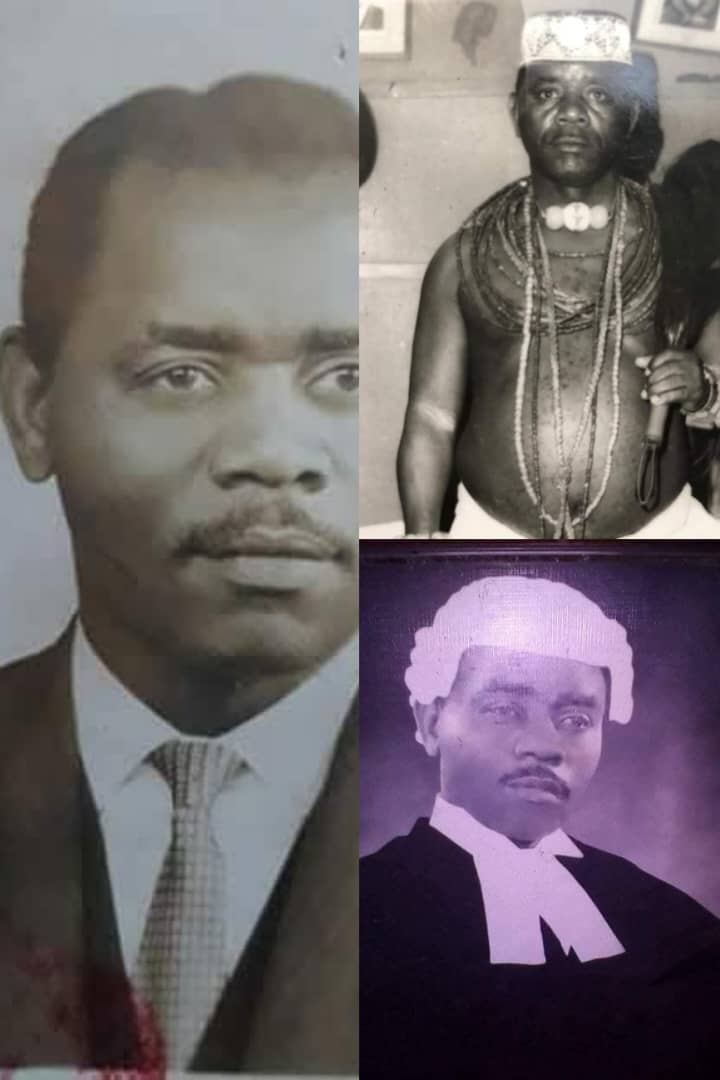
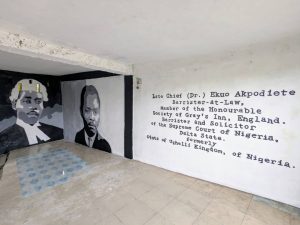
In a life of achievement, Chief Ekuogbe Akpodiete popularly called the Duke by his contemporaries in the UK was an assessment clerk, post office clerk, a court interpreter, an educationist, a business man, a political party chieftain, a Barrister and Solicitor, a Magistrate, the Otota (the Prime Minister) of Ughelli kingdom which is the highest traditional chieftaincy office that underpin the royal office of the Ovie of Ughelli Kingdom.
He was a trail blazer, a strict disciplinarian, a lover of people, and a philantropist. He saw to it that people lived in peace and happiness.
Born on the 4th of April, 1924, to parents cut from an industrious mould, Chief Ekuogbe Rowland Gregory Akpodiete took zealously to education that neither his mother Ughweriaka who was a trader, nor his father Akpodiete who was a farmer had.
He attended the Native Authority Primary School, Ughelli, and Enitona High School, Port Harcourt, for his secondary school education.
He thereafter had a brief teaching career in primary schools in Ofuoma near Ughelli, he worked as a process clerk in the then Sapele Township Department between 1950 and 1953, serving at the same time as an interpreter in the local courts.
He proceeded to the United Kingdom to seek the proverbial Golden Fleece where he worked and paid his way through, studying Law. He was admitted into the Honourable society of Gray’s Inn, England, in 1965, and shortly after, he returned home to Nigeria and attended the Nigerian Law School. He was called to the Nigerian Bar in 1966. He immediately started practice in Lagos. However, his practice in Lagos was regrettably abridged by the Nigerian Civil War, which drove him to his hometown Ughelli in 1967, where he continued to practise among his kith and kin as the first Legal Practitioner.
Chief Ekuogbe Akpodiete established himself in Ughelli. After the civil war, he served in the now defunct Mid-western State Judiciary from 1972 to 1975 as a Magistrate.
He was conferred with the chieftaincy title of Urhukperovie of Ughelli kingdom (the light of the King) by the then reigning Ovie of Ughelli, His Royal Highness Oharisi II of blessed memory in 1977.
In the quest for more knowledge, he went back to England for his Master’s degree in law (LL.M) and later a Ph.D. at the University of Warwick.
He was awarded an honourary doctorate degree (Ph.D) by Tenesse Christian University from the United States of America in 1991.
He became the Otota (the Prime Minister) of Ughelli Kingdom in 1986, an office he occupied until his demise on 9th April 1995.
Chief Ekuogbe Akpodiete was also politically involved. In the heady days of the Awolowo-led Unity Party of Nigeria, he was the party’s legal adviser in Ughelli and was on hand to assist during Chief Obafemi Awolowo’s campaign hosting in Ughelli and its environs.
In view of his love for people and entertainment, he established a popular cinema house, one of the first in Ughelli, known as REGA cinema, coined from his names, alongside an entertainment place called Unutakunu (people talk to people).
Chief Ekuogbe Akpodiete was blessed with wives and many children, grandchildren, and great grand children.
Mr. Olotu Akpodiete, PhD
Executive Director
Olotu & Ekuogbe Rowland Akpodiete foundation
-
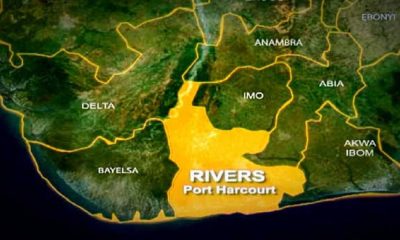
 News19 hours ago
News19 hours agoEmergency Rule: Punch Editorial went overboard – CRP
-

 News10 hours ago
News10 hours agoEx-finance minister rearrested in new fraud probe
-
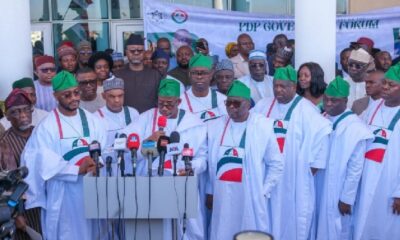
 News7 hours ago
News7 hours agoPDP governors declare support for Tinubu
-

 News7 hours ago
News7 hours agoHope for Nigerians as Dangote refinery slashes petrol price again
-

 News18 hours ago
News18 hours agoJust in: Rivers Administrator summons, suspended Gov, deputy
-

 News18 hours ago
News18 hours agoCBEX Staff Arrested After Trading Platform Collapse
-

 News10 hours ago
News10 hours agoFubara: How can I forgive somebody who never requested for it– Wike
-

 News11 hours ago
News11 hours agoAlleged Se3ual Harassment: Natasha Declines Out-Of-Court Settlement Proposal By Akpabio’s Counsel


















